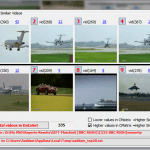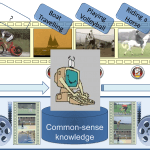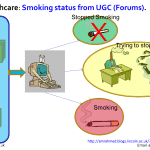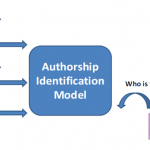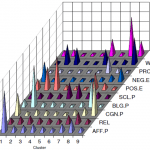Tag: computer vision
New Conference paper Accepted to the “ World Congress on Engineering”: Video Matching Using DC-image and Local Features
New Conference paper Accepted to the “ World Congress on Engineering”
The paper title is “Video Matching Using DC-image and Local Features ”
Abstract:
This paper presents a suggested framework for video matching based on local features extracted from the DC-image of MPEG compressed videos, without decompression. The relevant arguments and supporting evidences are discussed for developing video similarity techniques that works directly on compressed videos, without decompression, and especially utilising small size images. Two experiments are carried to support the above. The first is comparing between the DC-image and I-frame, in terms of matching performance and the corresponding computation complexity. The second experiment compares between using local features and global features in video matching, especially in the compressed domain and with the small size images. The results confirmed that the use of DC-image, despite its highly reduced size, is promising as it produces at least similar (if not better) matching precision, compared to the full I-frame. Also, using SIFT, as a local feature, outperforms precision of most of the standard global features. On the other hand, its computation complexity is relatively higher, but it is still within the real-time margin. There are also various optimisations that can be done to improve this computation complexity.
Well done and congratulations to Saddam Bekhet .
PhD Postgraduate Seminar
Saddam Bekhet, member of the DCAPI group presented a short presentation about his PhD work “Video similarity in compressed domain” at the school of computer science postgraduate monthly seminar on 13/03/2013 .
OpenCV workshop
Saddam Bekhet, member of the DCAPI group demonstrated workshop about Using OpenCV with Visual Studio 2010 Express edition on 23/01/2013 . In addition a demonstration about basic OpenCV operations (loading & manipulating images) and advanced operations (face detector & tracker from live camera stream) was demonstrated.
Face detection example link
http://opencv.willowgarage.com/wiki/FaceDetection
Summary of installation settings of OpenCV :
1- Download OpenCV files http://sourceforge.net/projects/opencvlibrary/files/opencv-win/2.4.0/
2- Download CMAKE http://cmake.org/cmake/resources/software.html
3- Use CMAKE to generate OpenCV library AND DLL’s and use x64 architecture or the architecture what ever suites you in VS2010
4-Open OpenCV build folder and search for “OpenCV.sln” then compile it.
5- Remember to but openCV DLL’s beside The Debug \EXEDirectory of your project in Visual Studio
6- Rememeber to install intel threading block http://threadingbuildingblocks.org/ and put the DLL called tbb.dll in your visual studio debug\EXE
Include direcories in VS2010 Project–>Properities–>VC++ Directories
D:\OpenCV\build\include
D:\OpenCV\build\include\opencv
Library direcories in VS2010 Project–>Properities–>Linker–>Input
D:\opencv\build\x64\vc10\lib
Linker–> Input
opencv_core242X.lib opencv_imgproc242X.lib opencv_highgui24X.lib opencv_ml242X.lib opencv_video242X.lib opencv_features2d2X.lib opencv_features2d2X.lib opencv_calib3d242X.lib opencv_objdetect242X.lib opencv_contrib242X.lib
opencv_legacy242X.lib opencv_flann242X.lib opencv_nonfree242X.lib
Make sure to reblace “X” in the previous file names with correct naming of the generated OpenCV library files for example on my machine it is “opencv_nonfree242d.lib”
